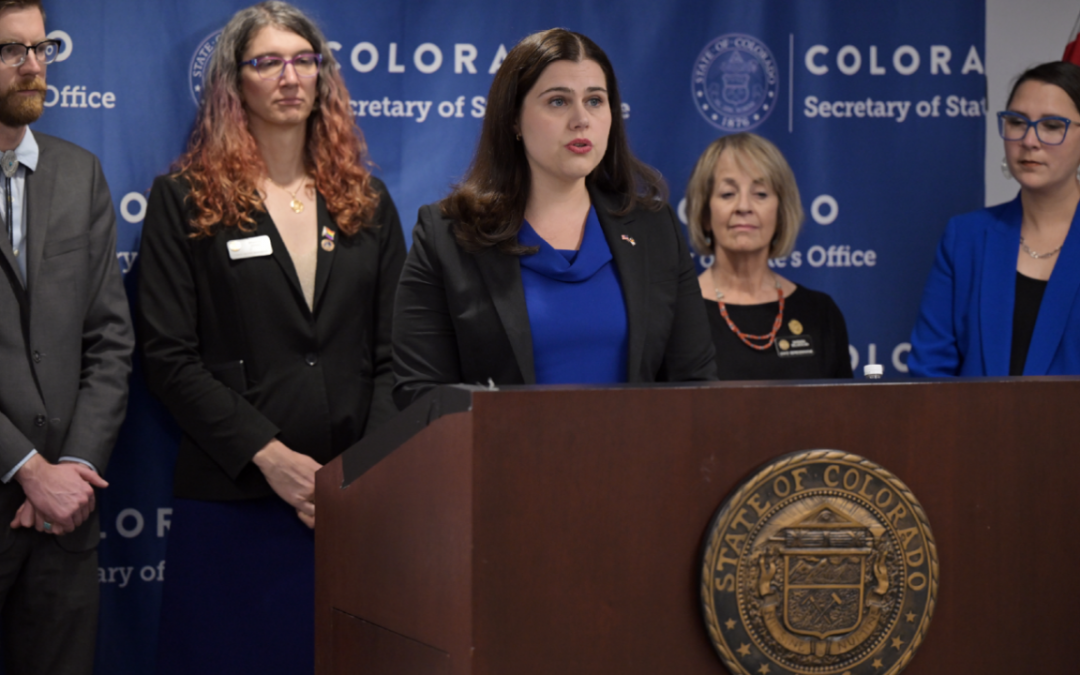
by Editor | Jul 1, 2024 | Global Alliance for Digital Governance
This article was originally published in The Hill.
There’s been a great deal of talk in Congress about regulating AI, but most of the legislative action is happening at the state level. If America is to lead the AI charge and create a stable environment for this tech to reach its enormous potential, Congress must think about something else: preemption.
Earlier this year, Tennessee passed the ELVIS Act to protect recording artists’ names, images and voices from AI-generated deepfakes. Colorado passed a law which will require businesses of all sizes in the state, as well as many AI model developers outside of the state, to conduct “algorithmic impact assessments” on racial, political, religious and other biases within their models.
But the most ambitious is California’s still-pending law, which would create a new administrative agency to oversee the development of the AI models themselves. Because the bill applies to any model “distributed” in California, and because any AI model generally available on the internet is distributed everywhere, this new agency would, in a practical sense, have jurisdiction over all AI models produced in the U.S.
Some who rightfully worry about the impact of AI on society might cheer on such forceful legislation, believing that the U.S. is “behind” the European Union in regulating it. But these people should think twice: AI regulation is not a race, and taking a few steps down the wrong regulatory path may leave us stuck there for a long time. It’s more important to regulate correctly than quickly.
Congress should therefore use preemption to put the brakes on misguided state attempts to regulate AI models.
Through preemption, the federal government reserves specific areas of lawmaking to itself. It already does this with many technologies, such as smartphones, because a patchwork of state laws for such products would create undue challenges in producing things we all rely upon.
While states should have a right to pass many AI laws — for example, policing AI-enabled deepfakes or fraud — the models themselves should be handled at the federal level, if they are regulated at all. Otherwise, the complexity of complying with as many as 50 model standards may deter investment in an important technology that China and other nations will fully exploit if we do not.
Congress has a few preemption options. It could simply restrict states from limiting the distribution of models on the internet. Many AI models are released as “open-weight,” meaning that the underlying numbers that define the model’s capabilities are freely available for download. Although it may sound crazy, this decades-old open-source model has produced trillions of dollars in economic value for the global economy.
Open-source undergirds the “permission-less” nature of software innovation. Because anyone can share ideas without permission from a regulator or other centralized body, innovation proceeds much faster and more flexibly. If Congress were to restrict states from impinging on this concept, many state-based model regulations — such as licensing regimes, agency preapprovals and similar approaches — would be preempted.
Another option would be to preempt state efforts to create novel liability regimes for AI.
California’s proposal, for example, assumes that any sufficiently damaging act enabled by an AI model — even if AI was only one tool among many — is the model developer’s responsibility, rather than the sole responsibility of the person who committed the act. This is the equivalent of holding Apple responsible for things people do with their MacBooks or iPhones.
Congress could create a much more reasonable nationwide liability standard: a rebuttable presumption that users rather than developers are responsible for misuse of AI models.
Finally, Congress could reserve the responsibility of setting technical standards to federal agencies such as the National Institute for Standards and Technology. NIST already houses the U.S. AI Safety Institute, which is dedicated to setting safety and evaluation standards for advanced AI models. No state could be expected to have similar technical expertise, so it would be logical for Congress to keep this duty with the federal government.
In all likelihood, the ideal preemption law would contain some combination of these three approaches. Some argue that bills like California’s are essential because Congress refuses to act. But the Senate’s bipartisan AI Roadmap rebuts this criticism. It explicitly downplays new regulatory regimes in favor of applying existing laws to specific applications of AI.
Furthermore, neither presidential candidate has made regulating AI models a campaign priority. Thus, it is reasonable to conclude that federal policymakers have deliberately chosen not to pursue model-based regulations for fear that they would harm American innovation.
AI presents many unanswered and profound questions. Answering them will take time. As that process plays out, Congress should not let one state decide our technological future.
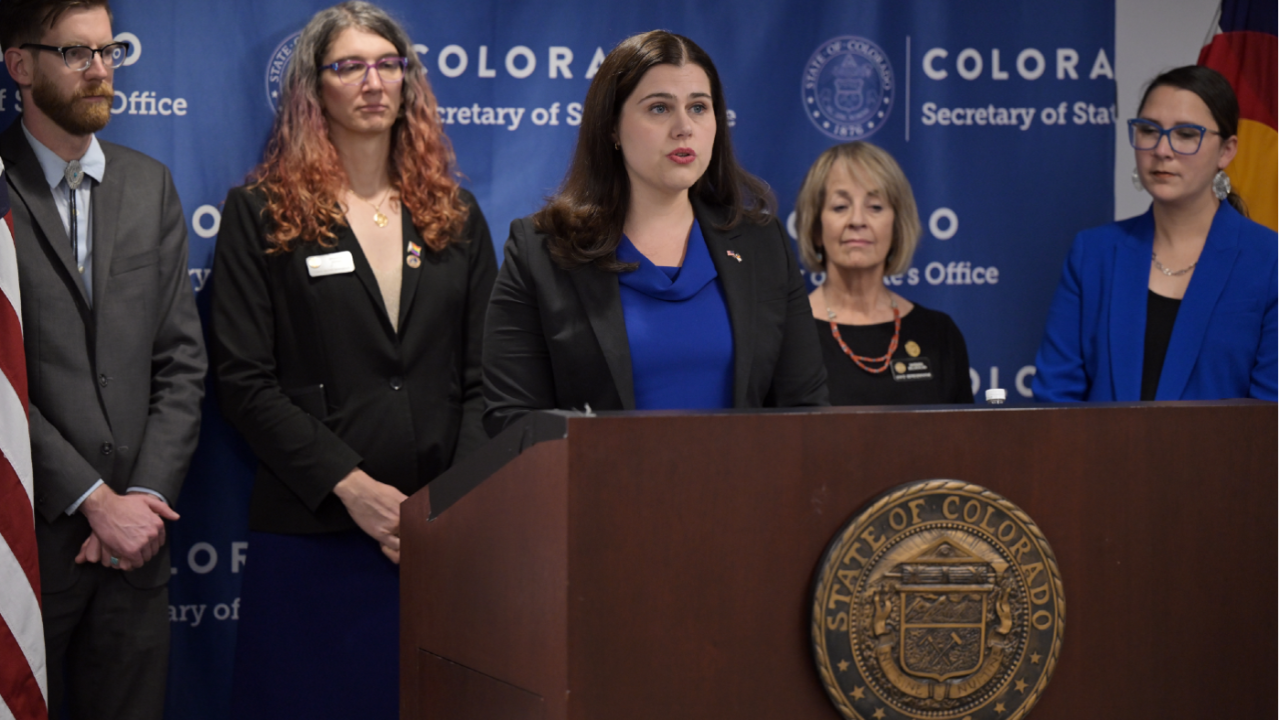
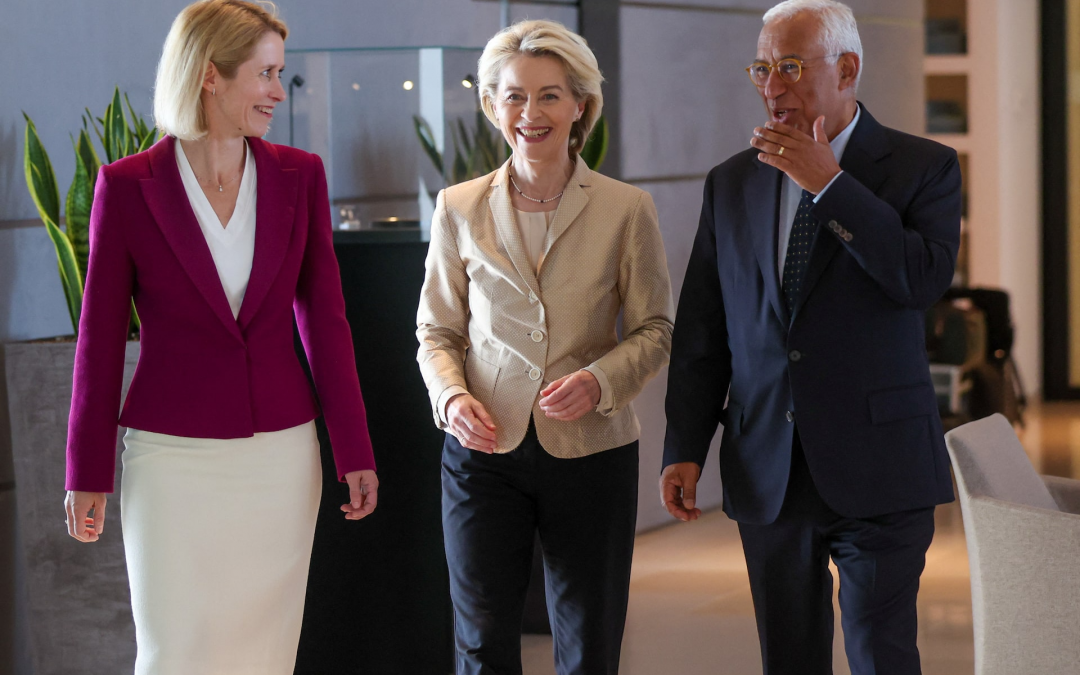
by Editor | Jul 1, 2024 | News
This article was originallly posted in the AP.
European Union leaders signed off on a trio of top appointments for their shared political institutions on Thursday, reinstalling German conservative Ursula von der Leyen as president of the European Commission for another five years.
At the side of von der Leyen, who heads the EU’s executive branch, would be two new faces: Antonio Costa of Portugal as European Council president and Estonia’s Kaja Kallas as the top diplomat of the world’s largest trading bloc.
“Mission Accomplished,” outgoing EU Council President Charles Michel told reporters after chairing a summit of the bloc’s leaders, as von der Leyen and Kallas accompanied him at a joint a news conference. Costa took part via video-link.
Von der Leyen expressed her gratitude for a shot at a second term of office, saying: “I’m very honored and I’m delighted to share this moment.”
Kallas, who as the EU’s top diplomat will lead the bloc’s foreign and security policy with Russia’s war on Ukraine in its third year, noted that “there is war in Europe, also growing instability globally. My aim is definitely to work for the European unity.”
Both von der Leyen and Kallas should now be approved by European lawmakers. Costa’s nomination only needed the leaders’ approval, and he will start in his new role in fall.
After the three centrist political families in the European Parliament struck a deal earlier this week, the top jobs package was widely expected to be approved without controversy at the summit in Brussels.
But far-right politicians, emboldened by their strong showing in EU parliament elections earlier this month, slammed it as a stitch-up.
Italian Prime Minister Giorgia Meloni made clear her displeasure at being excluded from preparatory talks with a small group of leaders who divvied up the top jobs. Her nationalist European Conservatives and Reformists group emerged as the third force in the EU parliament elections earlier this month.
Meloni voted against Portugal’s Costa and Estonia’s Kallas, two sources close to the discussions told The Associated Press on condition of anonymity. Meloni abstained on von der Leyen for European Commission president, the same sources confirmed. The officials requested anonymity in line with EU practice.
In a post on X, Meloni said the way that mainstream parties put forward the trio “is wrong in method and substance. I decided not to support it out of respect for the citizens and the indications that came from those citizens during the elections.”
Nationalist Hungarian Prime Minister Viktor Orban was the only other major critic of the deal.
“European voters were cheated,” he said on Facebook Thursday evening. “We do not support this shameful agreement!” His objections were moot: the package only needed a two-thirds majority to pass.
The June 6-9 election saw the EU’s legislature shift to the right and dealt major blows to mainstream governing parties in France and Germany, but the three mainstream groups managed to hold a narrow majority of seats.
Costa, a former Portuguese prime minister, hails from the center-left Socialists and Democrats group, which came second. Kallas is prime minister of her tiny Baltic home country. She comes from the pro-business liberal group, which is also home to embattled French President Emmanuel Macron and lost seats in the June poll, trailing into fourth place.
EU top appointments are supposed to ensure geographic and ideological balance, but ultimately it is the 27 leaders who call the shots – and generally the most powerful among them.
While Costa’s appointment is decided by EU leaders alone, both von der Leyen and Kallas will also need to be approved by a majority of lawmakers. With 720 members, the threshold is 361. That vote could happen when the newly constituted European Parliament meets for the first time in July.
The European Council is the body composed of the leaders of the 27 member states. If confirmed, Costa’s role as president would be to broker deals within an often hopelessly divided political club. In Portugal, he is known as a savvy negotiator.
But von der Leyen’s role is the most powerful. As commission president, her job is to devise and implement the bloc’s shared policy on everything from migration to the economy and environmental rules.
With the far right pushing back against the flagship EU policies ushered through in the last five years, von der Leyen’s critics charge she is poised to roll back ambition.
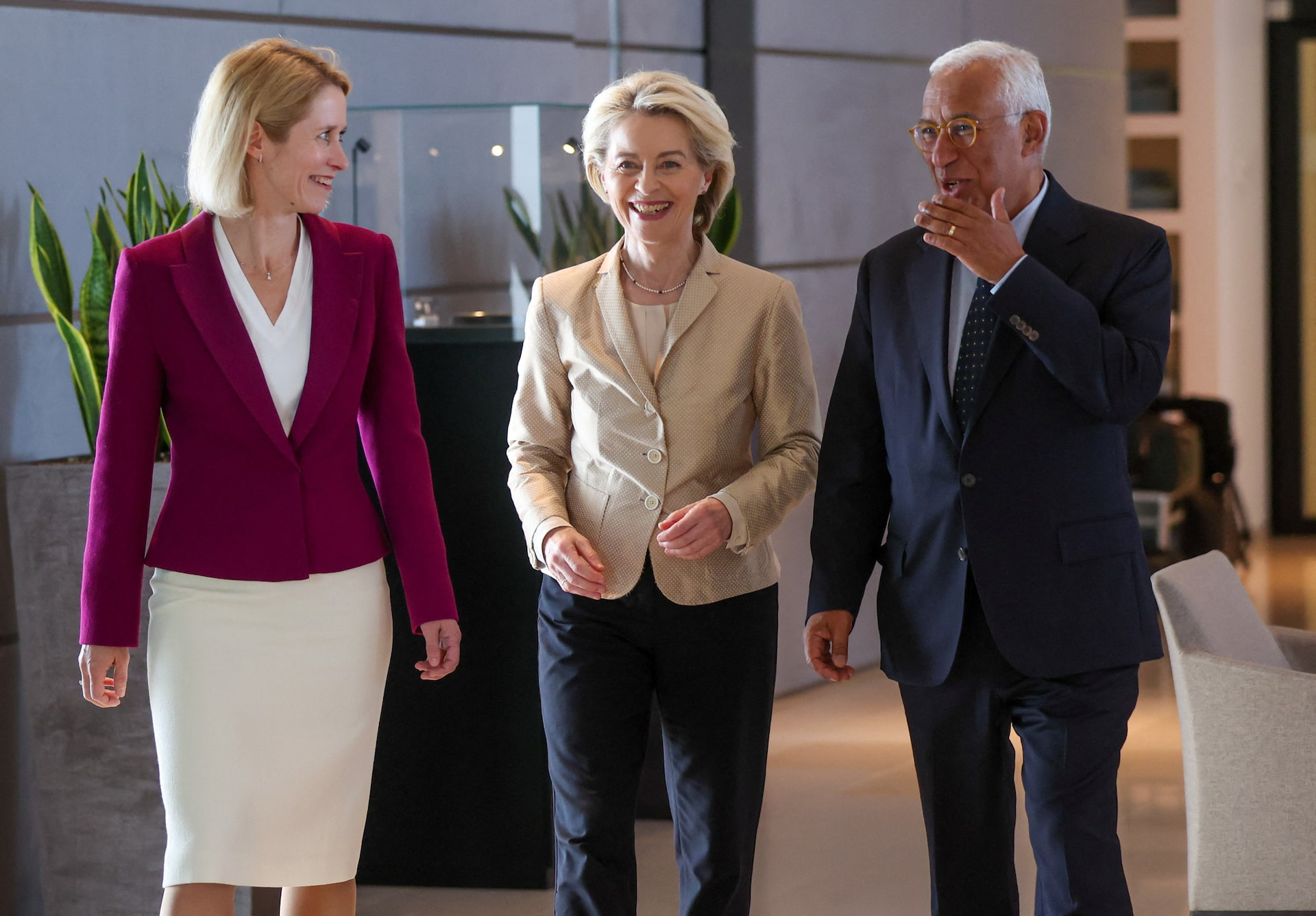
OLIVIER HOSLET/Pool via REUTERS
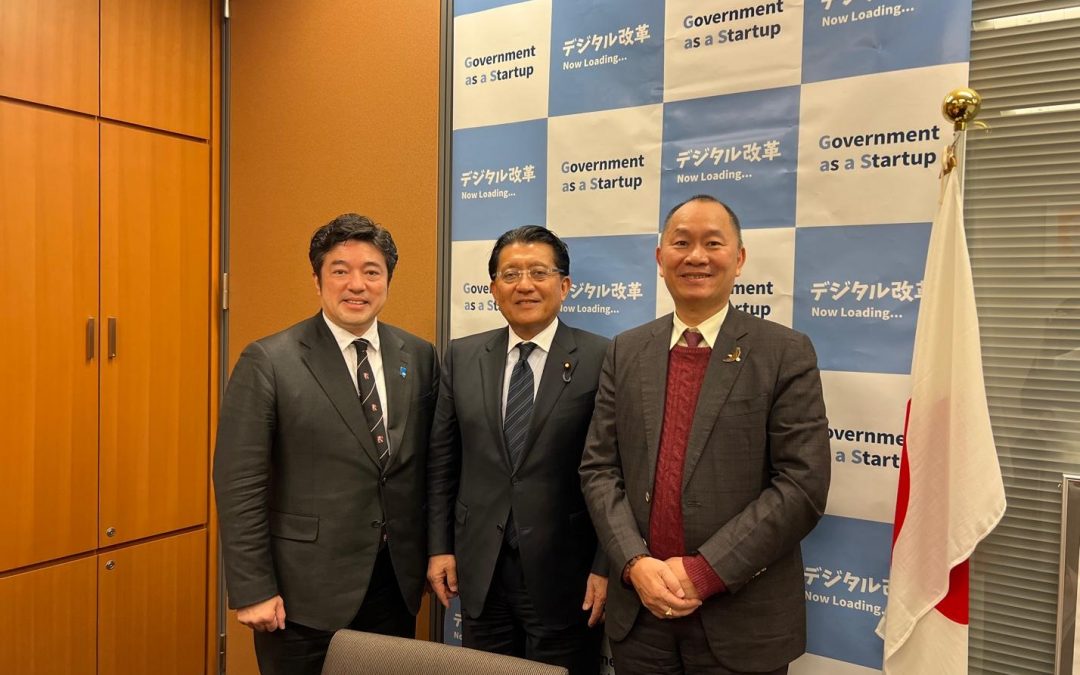
by Editor | Jul 1, 2024 | Publications
US think tank praised the “Abe Initiative” The “US-Japan-Australia-India” and “US-Japan-Britain-India” – two quads for global peace and stability
Noburu OKABE
July marks the ‘third anniversary in Buddhism’ of the two-year anniversary of the death of former Prime Minister Shinzo Abe, who was killed by a bullet during a speech in support of the Upper House election.
In March, the US think tank Boston Global Forum (BGF) held an online international conference in memory of Prime Minister Abe at the Hotel Okura in Toranomon, Tokyo, to honor the contributions to world peace and security led by former Prime Minister Abe and to ensure that his legacy is carried on to build a more peaceful and just world. As despotic states China and Russia are deepening their military and economic cooperation after the invasion of Ukraine, it is important that like-minded countries in the liberal-democratic camp deepen multilateral cooperation under the ‘Abe Initiative’ in order to safeguard the international order based on the rule of law.
‘Four pillars of world peace and security’
After former Prime Minister Abe’s untimely death in 2022, the BGF continued his legacy by holding memorial symposia on ‘Japan’s Peace and Security in the World’ in the same year and ‘Making Japan’s Economy Great in the Age of Global Enlightenment’ in 2023, the third of which was entitled ‘Four Pillars of World Peace and Security (US, Japan, EU-UK and India)’ The BGF was established in 2011 by former Massachusetts Governor Michael Dukakis, a Democratic Party heavyweight and chairman who ran for US President in 1988, and Nguyen Anh Tuan, a Vietnamese CEO who ran a successful internet provider business in Vietnam, In 2015, it established the Leadership Award for Peace and Global Security and selected former Prime Minister Abe as the first recipient, along with former German Chancellor Merkel.
The turning point in the BGF’s assessment of former Prime Minister Abe, a stronghold of the liberal movement, came in May of the same year, when he became the first Japanese Prime Minister to address a joint meeting of the US Senate and House of Representatives. He emphasized Japan’s democracy, articulated a line of cooperation with the US, expressed condolences to US soldiers killed in action and called for a ‘cordial relationship’ between Japan and the US, which had become an ally rather than an enemy. When he advocated an “alliance of hope”, even “pro-China” Democratic Party officials frowned at China’s hegemonic aspirations and sympathized with the “alliance of hope.”
At the time, with China’s construction of artificial islands in the Nansha Islands and its expansion of military power in the Xisha Islands, tensions rose in the South and East China Sea, and respect for former Prime Minister Abe as a global leader increased.
‘Former Prime Minister Abe has played an important role in maintaining peace and security in the Pacific, particularly in the East and South China Seas, including the Senkaku Islands, and Japan has made a significant contribution to peace in Asia.’
When Tuan explained the current situation in Asia as a Vietnamese citizen, former Governor Dukakis’s assessment of former Prime Minister Abe changed and he graciously welcomed him as a partner with whom he should coexist in democracy and the US-Japan alliance.
The US has adopted the ‘Free and Open Indo-Pacific’ concept proposed by former Prime Minister Abe in 2016 as its main policy, as its foreign and security policy based on ‘active pacifism’ based on international cooperation principles has gained increasing recognition. It is highly unusual for a sovereign state to adopt the policies of another country. Since then, the concept has been adopted one after another by the UK, Germany, France and other European countries, as well as the Association of Southeast Asian Nations (ASEAN) countries, and has become established in the international community as a common principle for democratic countries, and the concept has spread around the world.
When former Prime Minister Abe was killed by a deadly bullet in 22 years, the BGF established the Shinzo Abe Initiative for Peace and Security, saying that we must continue to uphold Abe’s vision for peace and security and contribute to his mission. It was a show of love, respect and condolence for former Prime Minister Abe.
Why would a US think tank organize a symposium in memory of former Prime Minister Abe’s achievements? Mr. Tuan explained.
‘To contain a rising China, democracies such as the US, Japan, India and Europe need to maintain their strength to counter it. Japan’s economic success and foreign policy are therefore crucial. It is essential to continue Abe’s legacy, promote a free and open Indo-Pacific policy and maintain and continue Abenomics.” Again, Professor Alex Pentland of the Massachusetts Institute of Technology said, “China is uncontrollably developing next-generation technologies such as AI and is aiming for world domination. In order to deter China from attempting to change the status quo, the liberaldemocratic camp, led by Japan, should unite”, Tuan said that “four pillars (the US, Japan, the EU-UK and India)” would be important for world peace and security.
The Other Quad
‘If the four pillars – the UK, the US, Japan and India – were reunited, it would have a huge impact on global peace and security.’
Professor Yuichi Hosoya of Keio University called for these four countries to show leadership in realizing a ‘free and open Indo-Pacific’.
”Prime Minister Abe said the Indo-Pacific was the most important in the world and that Japan would play a major role there and show leadership to the world.”
Japan, which Professor Hosoya highly valued and advocated the concept of, of course, the UK, which left its influence in the region during the British Empire and launched a tilt towards the Indo-Pacific in the ‘Integrated Review’ of Foreign and Security Policy in 2021, the US, which continues to play the strongest and leading role in the world today in military, economic and other areas, and India, the world’s largest democracy, which is It was pointed out that strengthening the cooperation that the four countries have built with each other and acting shoulder to shoulder is essential for peace and stability.
It must be China that is in mind. It is increasing its hegemonic orientation and increasing its intimidation of Taiwan. It is also supporting Russia in its invasion of Ukraine. Even geographically distant Europe is becoming increasingly alarmed by the Chinese threat.
It is the UK that is most interested in the region. Former British Ambassador to Japan Paul Madden, who participated online from Singapore, where he was travelling on business, said that the UK’s interest in the region “is not anti-Chinese encirclement” but “out of economic interests and the resolution of security concerns” and that the UK “wants to lead a multilateral partnership that unites Japan and the liberal democratic camp”. He stated.
The UK, which voted to leave the EU in the 2016 referendum, has returned to the region and is making moves: in 2021 it dispatched an aircraft carrier strike group with the aircraft carrier Queen Elizabeth as flagship to Japan and other countries. With the US and Australia, it has established a security framework, AUKUS, and will provide nuclear submarines to Australia. Japan will also be asked to cooperate in research into artificial intelligence (AI), quantum and other advanced technologies, with a view to joining in the future. In the revised 2023 ‘Integrated Review’, in which participation in the Trans-Pacific Partnership (TPP) was decided, it declared that strengthening its involvement in the region would be a ‘permanent pillar of its policy’. Furthermore, even if the war in Ukraine and the Israeli-Gaza conflict breaks out, the British military will dispatch the aircraft carrier ‘Prince of Wales’ strike group to Japan and other countries in 2025 and conduct regular joint exercises with Japan and the US in the Indo-Pacific from the same year. Ties with Japan will be further strengthened. Tsuneo Watanabe, Senior Fellow at the Sasakawa Peace Foundation, noted that “there is a potential for Japan to join AUKUS in the future”.
The ‘Quad’ of Japan, the US, Australia and India is a framework for cooperation surrounding the South China Sea from the Pacific Ocean. If Japan, the US, Britain and India strengthen their unity, as advocated by Professor Hosoya, it may pave the way for ‘another Quad’ from the Pacific Ocean through the Indian Ocean to the Atlantic Ocean. The ‘free and open IndoPacific’ concept of foreign and security policy is not limited to the Indo-Pacific region. It leads to a free and open world ocean and a freer and more open international order. If the ‘Double Quad’ framework, which combines two Quads on the basis of the ‘US-Japan alliance’, which is stronger than ever, and the special Anglo-Saxon relationship ‘US-UK alliance’, works, the cooperation of the liberal democratic camp for world peace and stability, led by former Prime Minister Abe, will be further expanded.
AI governance collaboration is also an Abe legacy
The rapid evolution of AI has pointed to threats ranging from the use of AI to guide public opinion to the development of ‘autonomous lethal weapon systems’ (LAWS) that attack targets without human judgement, requiring effective governance to manage their use and mitigate potential dangers.
In April, the BGF recognized Dr Alondra Nelson, who led AI policy as Acting Director of Science and Technology Policy in the Biden Government, with the AI Global Leadership Award. In an interview for the award, Dr Nelson said, “AI governance is a pressing issue. The Abe Initiative is a collaboration between important liberal democracies in the world, including the US, Europe, India and Japan, and she can help with AI governance”, and said she would extend the international collaboration through Abe’s initiative to AI governance.
Nature magazine named Dr Nelson one of the 10 people who shaped science in 2022, and in 2023, Time magazine named her one of the 100 most influential people in AI and the first black woman to be named by the White House to head US science and technology policy. Since October last year, she has been appointed by UN Secretary-General Antonio Guterres to the UN High-Level Advisory Body on AI, where she is working on AI policy from a global perspective.
Coincidentally, prior to joining the Biden administration, Dr Nelson, as President of the independent non-profit US Social Science Research Council (SSRC), was responsible for the US side of the Abe Fellowship Programme, which promotes the exchange of researchers and journalists who are conducting interdisciplinary and international research and studies in the US and Japan, and was a long-time admirer of former Prime Minister Abe.
‘It was a meaningful programme of cross-cultural exchange, encouraging researchers and journalists to work with the SSRC. This time, the ‘connection’ with former Prime Minister Abe returned again. We will do our utmost to work on it, and with the Abe Initiative, we want to strengthen the cooperation between the liberal camps in AI governance and protect democracy.”
She commented. We want to extend a free and open international order from security to AI governance from the Pacific to the Atlantic to contain the hegemonic states of China and Russia.


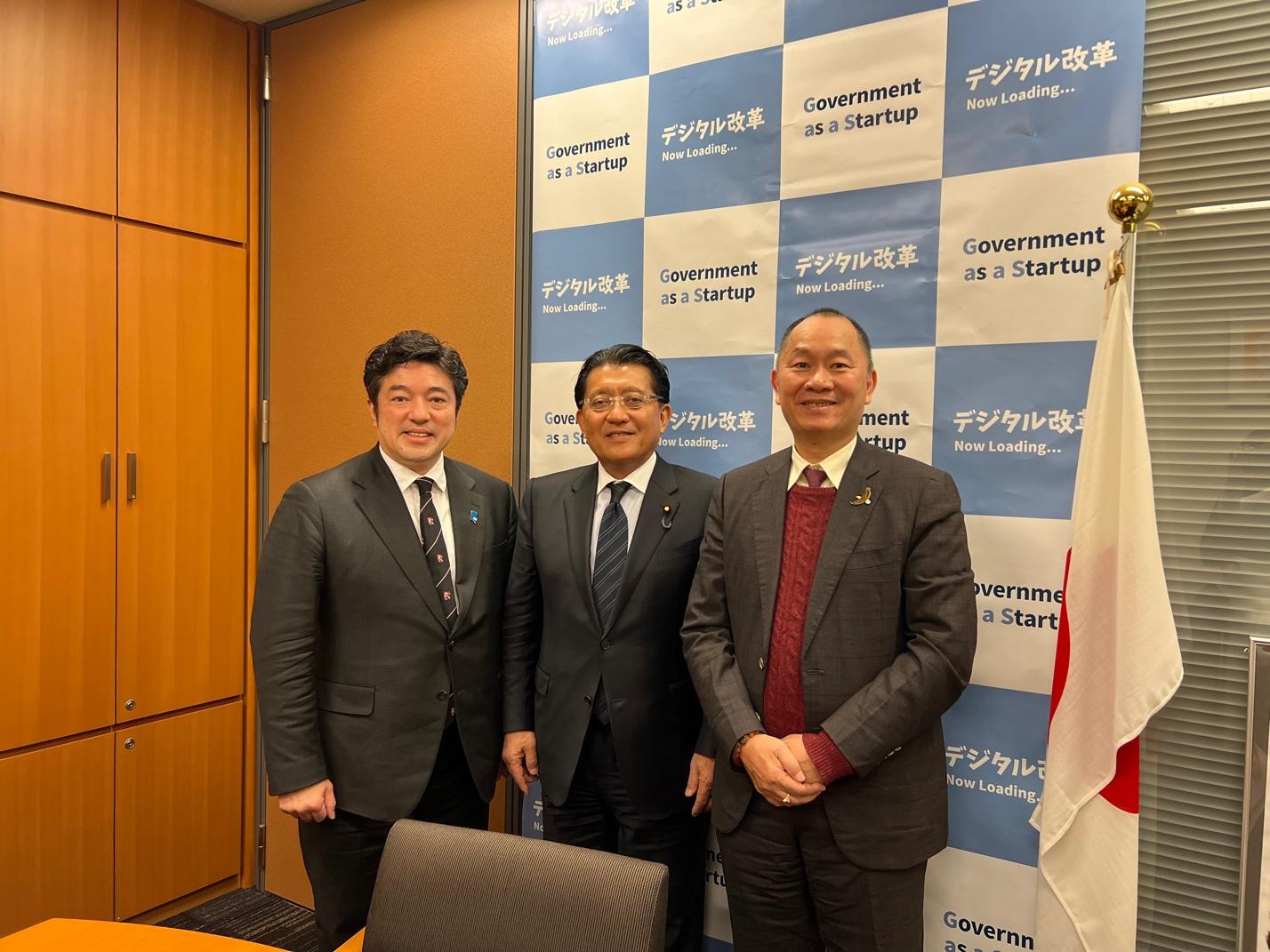
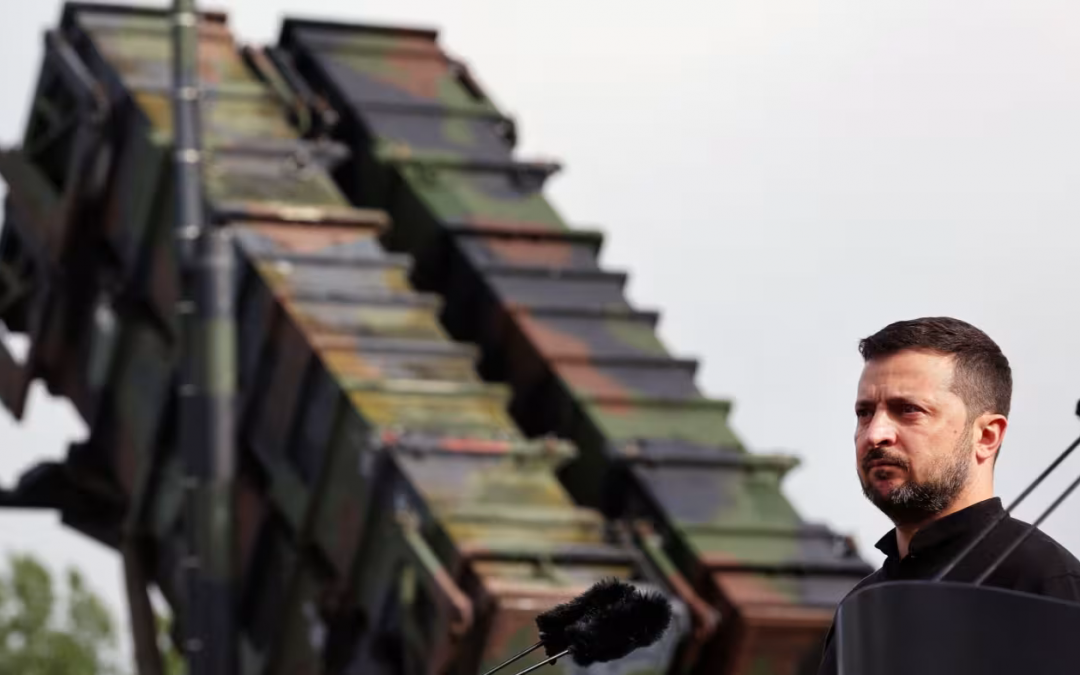
by Editor | Jun 24, 2024 | News
This has been a relatively slower week for international developments, but let us speak of the Four Pillars.
India and Europe, two Pillars, have been strengthening their ties in the past week. India has now approved the construction port to improve trade with Europe, and also affirmed a trilateral agreement with France and Australia, showing the necessity of Four Pillars security presence in the Indo-Pacific. These moves come after India and the US, another Pillar, also strengthened their ties, with an agreement on military equipment earlier in the month.
With regard to Ukraine, the US and Europe may be coordinating further to help defend the besieged nation. One such move is the redirection of the Patriot missile systems, in that the US is now prioritizing sending them to Ukraine instead of orders. They have also pushed European states and NATO members to send these systems to Ukraine, with the US agreeing to backfill them, an example being Romania announcing so in the week. This move also followed up the signing of a 10-year defense pact between the US and Ukraine last week at the G7 Conference.
Adjacent to these Pillar topics is the ongoing clashes between China and the Philippines in the South China Sea, which have now seen violence, injuries, and seizure of boats – which shows the hostility of the Chinese state to the rules-based order and democracy. The challenges of China and Russia demonstrate the necessity of Four Pillars cooperation, not just in the Indo-Pacific, but also Europe and elsewhere, for they threaten the many fruits of a modern global and liberal society. It no longer should be the US spearheading efforts on both continents, but a cooperation of all – Europe, Japan, India, and the US, and with their partners too (eg. Ukraine, South Korea, Kenya, etc).
Article of the week – A year ago, Russian mercenary chief Yevgeny Prigozhin challenged the Kremlin with a mutiny [AP News]
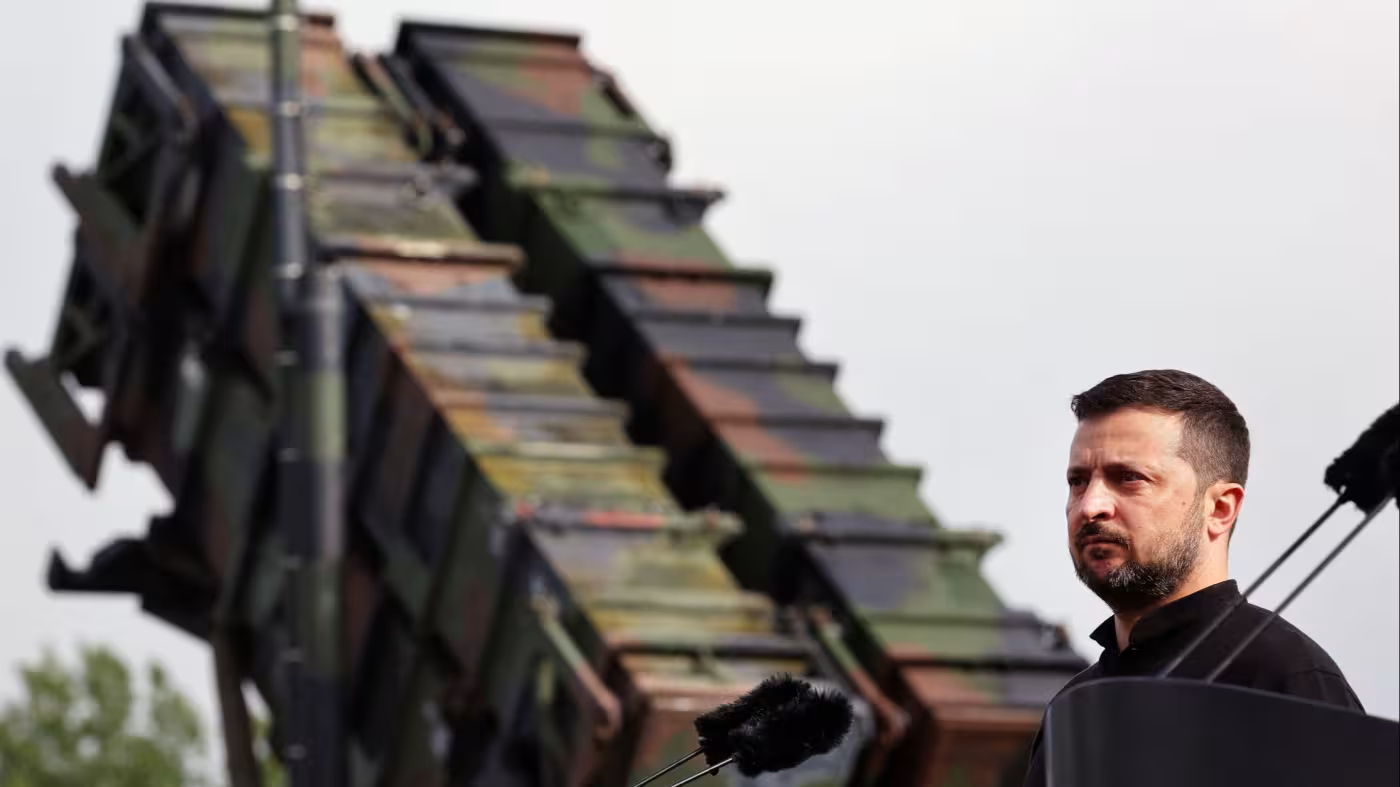
President Volodymyr Zelenskyy at a military base in Germany earlier this month where Ukrainian soldiers are being trained to use the Patriot air defence system © POOL/AFP via Getty Images
Minh Nguyen is the Chief Editor of the Boston Global Forum and a Shinzo Abe Initiative Fellow. She writes the Four Pillars column in the BGF Weekly newsletter.
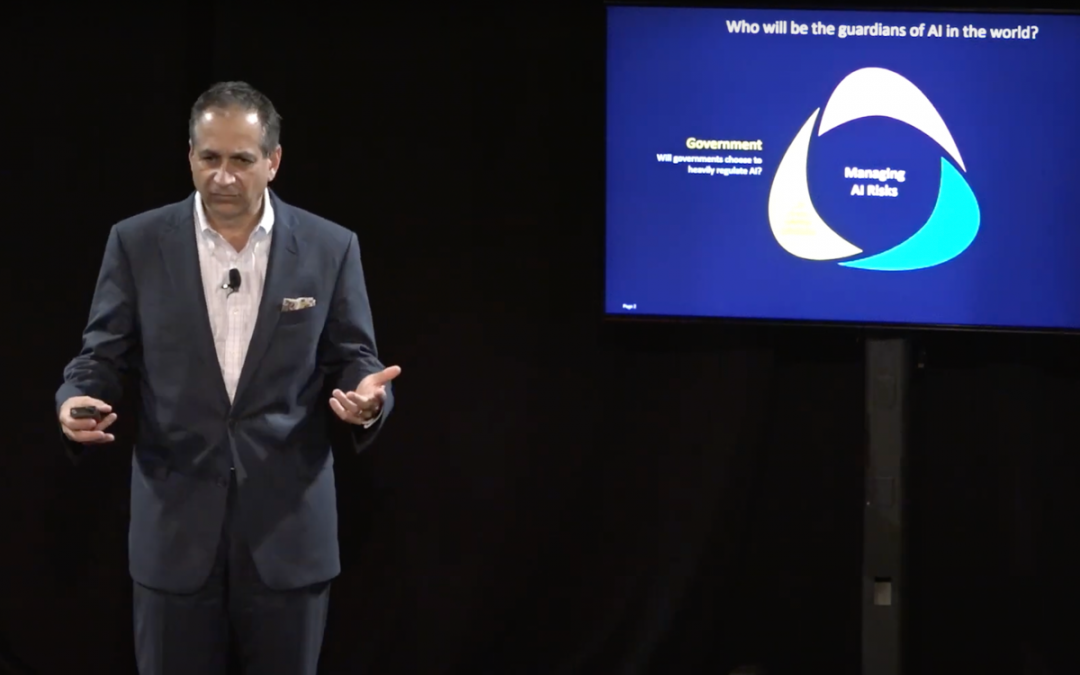
by Editor | Jun 23, 2024 | Publications
The full paper can be downloaded as a PDF here: The Knowledge Platform for AI – The Contribution of Business. Below is the introductory chapter of the paper.
Directors AI Ethics Forum, Harvard University, June 17-18, 2024
Nguyen Anh Tuan, Jeff Saviano, Thomas Patterson, Quynh Nham, Minh Nguyen, Yasuhide Nakayama, Paul Nemitz
I. Introduction
A. Creating The Knowledge Platform for AI.
Since its inception in November 2017, the Artificial Intelligence World Society (AIWS), founded by the Boston Global Forum (BGF), has been at the forefront of shaping the governance of artificial intelligence (AI) and fostering new models for democracy. Through collaborations with global leaders and top AI thinkers, AIWS has introduced innovative initiatives and frameworks aimed at harnessing AI for the betterment of society. These efforts have included collaboration with organizations such as the United Nations, Club de Madrid, Riga Conference, Harvard University, MIT, and universities in Japan, Europe, India, and Vietnam.
Artificial Intelligence (AI) poses significant threats to humanity. To address them, BGF established AIWS in 2017, calling for efforts to make AI safe and beneficial based on the Social Contract for the AI Age. AIWS seeks collaboration from universities, companies, governments, institutions, and individuals to remake the world with AI for a better, safer future. Urgent action is needed to establish new democratic models to harness AI’s advantages and advancements while mitigating the risks.
On April 30, 2024, at the BGF Conference “Governing the Future: AI, Democracy, and Humanity” held at Harvard University’s Loeb House, BGF announced its intent to create the “Knowledge Platform for AI.” Amid the rapid evolution of AI, there is an urgent need for a robust knowledge platform to address gaps in ethical standards. The Knowledge Platform for AI aims to fill this void by providing a centralized knowledge repository that can inform the responsible development of AI. It will serve as a beacon for ethical AI usage, guided by humane principles designed to ensure that AI development aligns with ethical standards and societal values. The principles and values embedded in the Knowledge Platform derive from the Boston Global Forum’s Social Contract for the AI Age and AI World Society (AIWS) Model (see Appendix B).
B. Importance of Building a Knowledge Platform for AI and Ensuring Equality of Opportunity in AI
- Creating a Robust Foundation:
- The Knowledge Platform for AI builds on historical values, standards, and norms, and political, social, and economic models from global pillars such as the USA, Japan, India, and the EU. This foundation is essential for developing AI systems that are ethical, inclusive, and beneficial to all.
- Ensuring Fairness and Inclusivity:
- It is crucial to ensure that AI technologies do not perpetuate existing inequalities or create new ones. By building a platform that emphasizes equality of opportunity, the benefits of AI can be accessible to all individuals, companies, and countries, regardless of background or resources.
- Establishing Standards and Regulations:
- The platform will provide a basis for creating international standards, laws, and conventions to govern the development and use of AI. This is essential to maintain the ethical use of AI and to protect individuals and societies from potential risks associated with AI technologies.
- Promoting Ethical AI Integration:
- The platform will promote the integration of AI in a manner that emphasizes kindness, fairness, justice, honesty, and humanity. This approach will help build a society that values these principles.
- Humanity Governing AI:
- AI must be governed by the people. The platform will ensure that AI fosters human decision-making rather than dominating or replacing it.
- Creating Sample AI Assistants:
- Developing AI assistants that focus on compassion, education, and innovation will provide practical examples of how AI can be used to enhance human capabilities and improve quality of life.
C. Role of Business Leaders in This Initiative
Business leaders play a crucial role in this initiative by:
- Driving Innovation and Adoption:
- Business leaders can drive the innovation and adoption of ethical AI technologies within their organizations, setting an example for others to follow.
- Investing in Ethical AI Development:
- By investing in the development of AI technologies that adhere to the standards and values of the Knowledge Platform for AI, business leaders can ensure that their companies contribute positively to society.
- Collaborating with Stakeholders:
- Business leaders can collaborate with other stakeholders, including governments, academia, and non-profits, to develop and implement the standards, laws, and conventions necessary for governing AI.
- Promoting Inclusivity and Accessibility:
- Ensuring that AI technologies are accessible to all, and not just a privileged few, is essential for promoting equality of opportunity. Business leaders can play a pivotal role in making this a reality.
- Championing Ethical Practices:
- By championing ethical practices and promoting the values of the Knowledge Platform for AI within their organizations and industries, business leaders can help create a culture that values fairness, justice, and humanity in AI development.

Jeff Saviano, AI Ethics Director of Boston Global Forum
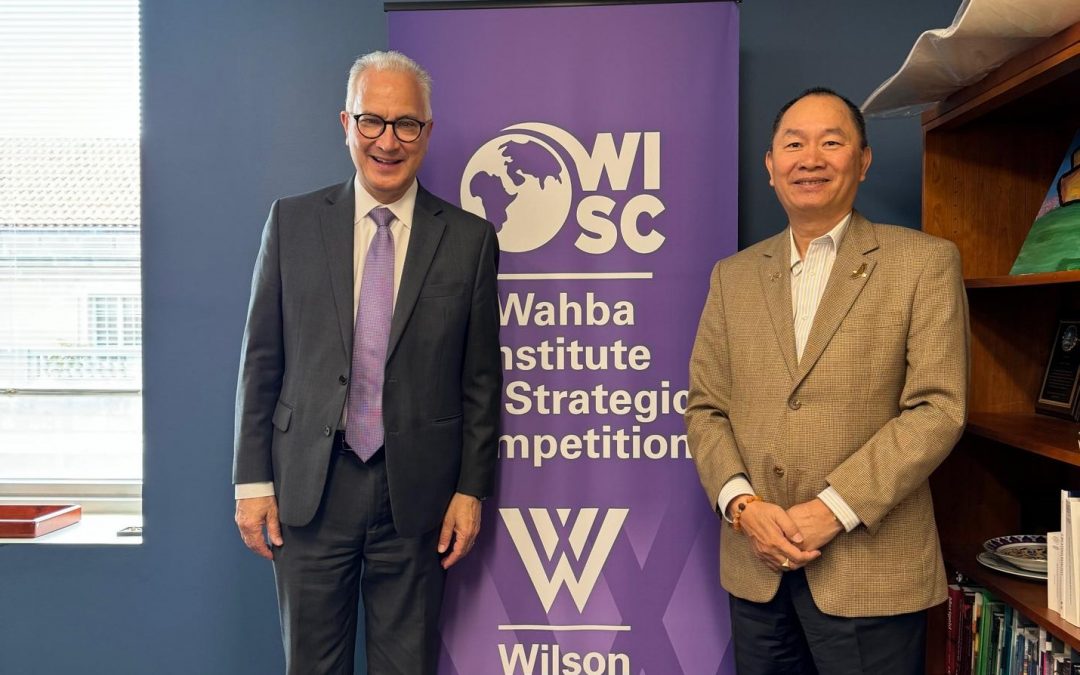
by Editor | Jun 23, 2024 | News
On June 21, 2024, the Boston Global Forum (BGF) and the Wahba Institute for Strategic Competition at the Wilson Center announced a groundbreaking partnership aimed at enhancing strategic relations between the United States, Japan, India, and Vietnam. This collaboration marks a significant step forward in fostering deeper economic and political ties among these key Indo-Pacific nations.
BGF and the Wahba Institute unveiled their joint initiative, inviting distinguished policymakers, eminent thinkers, and business leaders from the US, Japan, India, and Vietnam to join the Indo-Pacific Spark Leaders. The Indo-Pacific Spark Leaders will contribute to developing a robust framework for collaboration, addressing critical issues and opportunities in the region. Through focused research and strategic collaboration, the Indo-Pacific Spark Leaders will develop guidelines to strengthen economic and political cooperation, ensuring a peaceful, secure, stable, and prosperous future for all participating nations in the Age of AI.
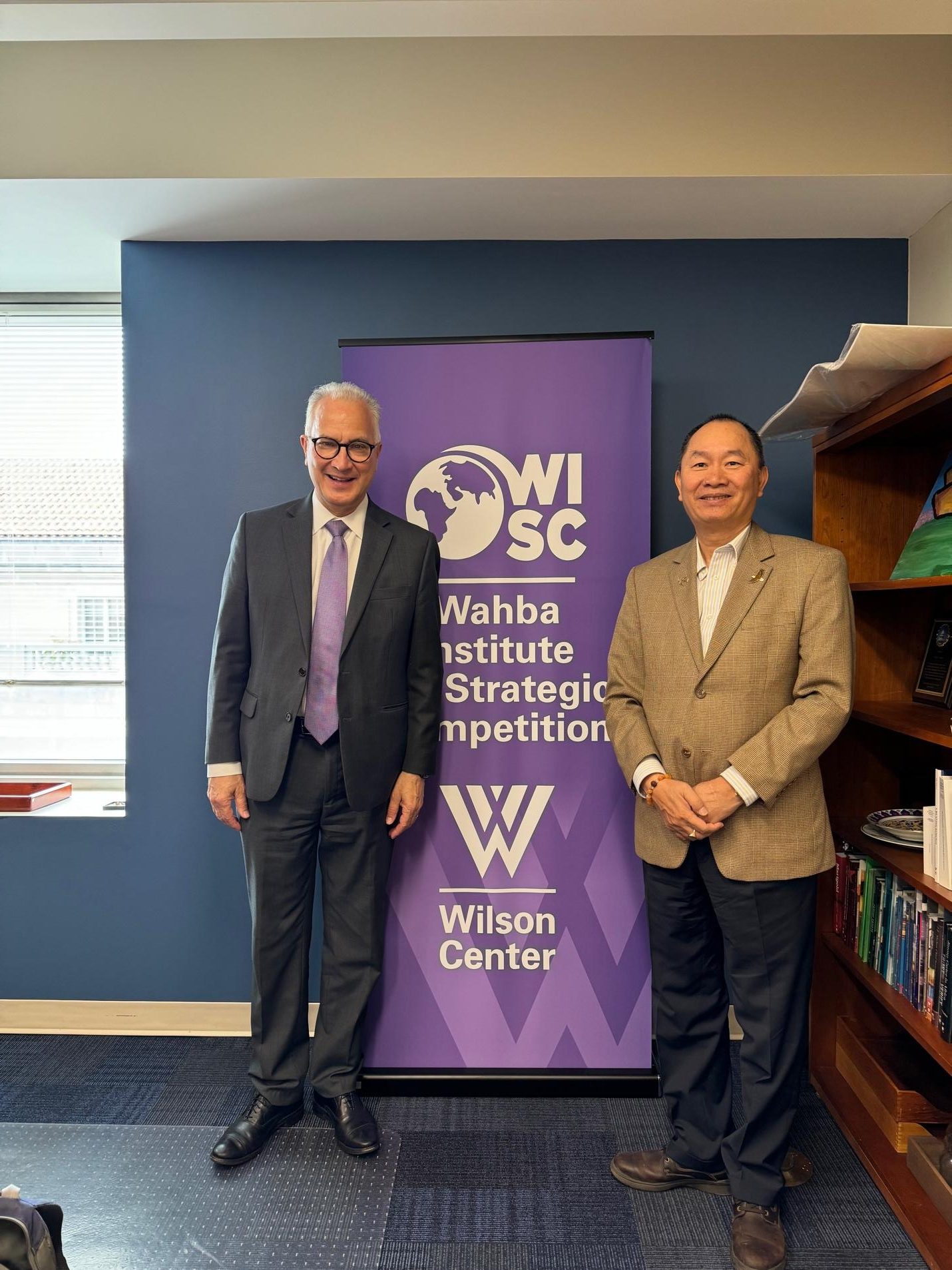

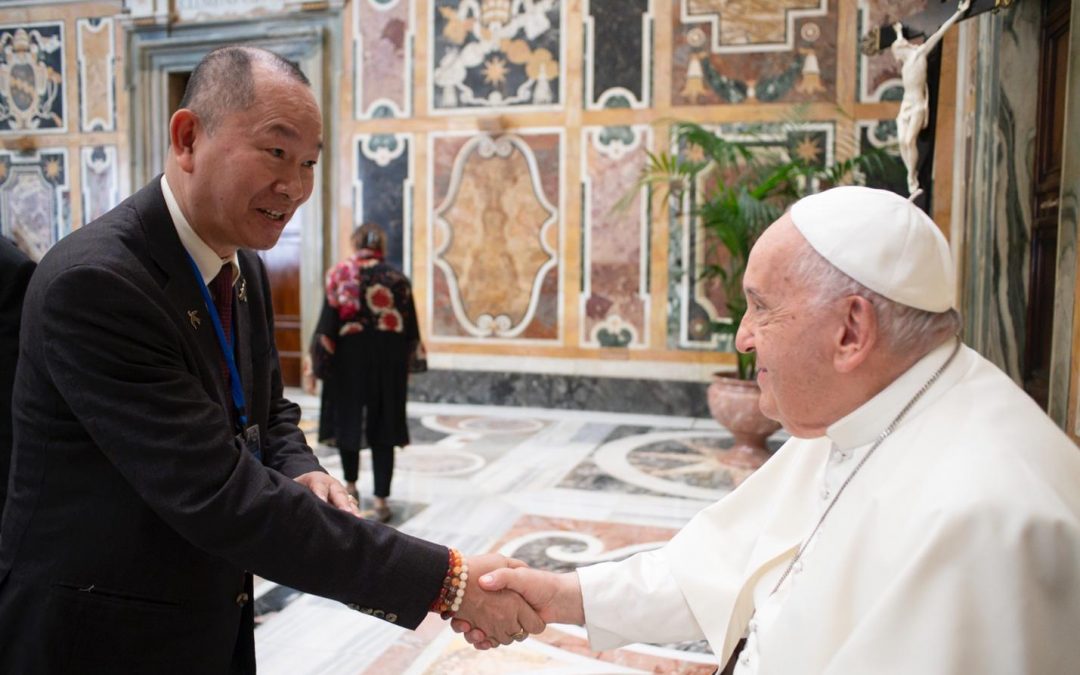
by Editor | Jun 23, 2024 | News
Pope Francis’ Speech at the G7 Summit 2024
On June 14, 2024, Pope Francis delivered a profoundly impactful speech at the G7 Summit, addressing the ethical dimensions of artificial intelligence (AI). His Holiness emphasized that AI is neither objective nor neutral, highlighting the necessity for ethical principles and human values to guide AI development. This call to action for world leaders underscored the responsibility of ensuring that AI technologies are used to enhance human well-being, promote justice, and create a more compassionate world. Pope Francis’ address resonated deeply, reinforcing the moral imperative for global cooperation in AI governance to safeguard the dignity and rights of all individuals.
Nguyen Anh Tuan’s Speech at the 2024 Inter-religious Conference
On June 1, 2024, at the Inter-religious Conference held at Centro Mariapoli in Castelgandolfo, Nguyen Anh Tuan, CEO of the Boston Global Forum, delivered an insightful speech on the “Knowledge Platform for AI and Ensuring Equality of Opportunity in AI.” Tuan emphasized the integration of spiritual values into AI development, advocating for a robust framework that ensures fairness and inclusivity in the Age of AI. He highlighted the critical role of data, information, and knowledge as foundational elements for building ethical AI systems. Tuan’s vision for the AIWS model, initiated by the Boston Global Forum, focuses on creating a safe, prosperous, and equitable world through the responsible use of AI. His speech called for a united effort to develop transparent and ethical AI practices, ensuring that the benefits of AI are shared universally and contribute to AI, new democracy, and humanity.
Reflection
Both speeches underscore a common theme: the imperative of ethical governance in AI development. Pope Francis and Nguyen Anh Tuan each highlight the necessity of embedding human values into AI systems to ensure that these technologies serve the greater good. Their calls for international cooperation and ethical standards reflect a shared vision of a future where AI contributes to a just, inclusive, and peaceful world. As we move forward in the Age of AI, the insights and principles articulated by these leaders provide a vital roadmap for harnessing AI’s potential to enhance human dignity and promote universal well-being.
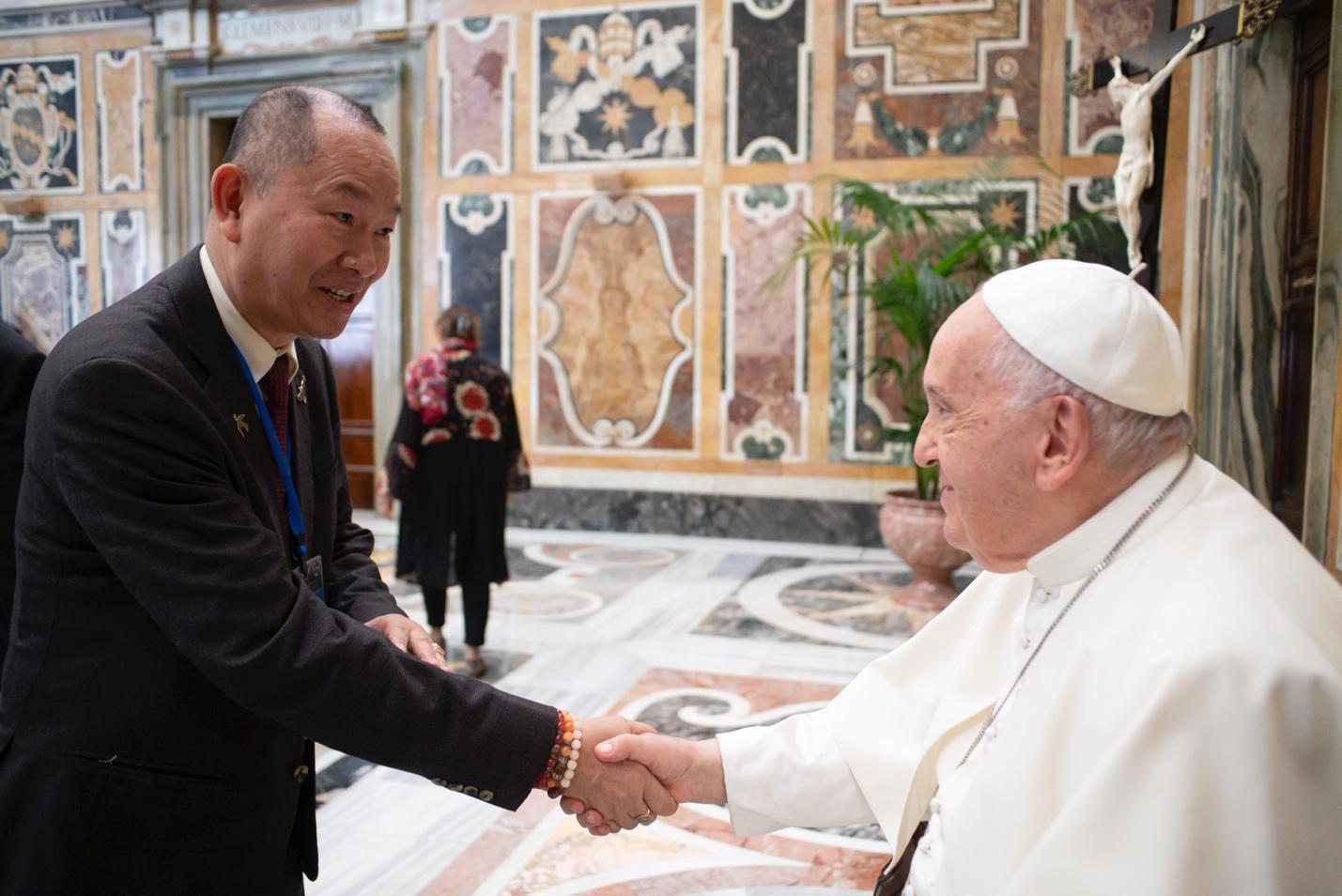

by Editor | Jun 21, 2024 | News

For Immediate Release
Boston Global Forum and The Wahba Institute for Strategic Competition of the Wilson Center Announce Partnership to Research Strategies for Enhancing Relations between US-Japan-India and Vietnam
Boston, MA – Washington DC, June 21, 2024 – The Boston Global Forum (BGF) and the Wahba Institute for Strategic Competition (WISC) of the Wilson Center are pleased to announce a new partnership aimed at researching and developing strategies to enhance economic and political relations between the United States, Japan, India, and Vietnam. This collaboration, known as the Indo-Pacific Spark Initiative, seeks to strengthen technology, trade, infrastructure, and energy ties, reinforcing American economic and global leadership for the benefit of the nation and the world.
The Wilson Center, established by the United States Congress over 50 years ago, was created to provide fact-based and objective analysis and offer a forum for meaningful discussion between the public, private, and academic sectors. As stated by Wilson Center President, Ambassador Mark Green, “the mission of the Wilson Center is not only timely, but it is also timeless.” In today’s increasingly partisan political climate, the need for factual and unbiased information is more critical than ever.
Supported by a diverse community of private and public sector partners, the Wilson Center’s regional and topical programs address the most pressing global issues. WISC works to shape conversations and inspire meaningful action to bolster technology, trade, infrastructure, and energy, ensuring America’s and its allies’ leadership in securing a rules-based international order.
The Indo-Pacific Spark Initiative between WISC and BGF will focus on areas of mutual interest, particularly opportunities for Vietnam to enhance its economic and political relations with Japan, India, the EU, and the United States. This initiative aligns with WISC’s mission to inform conversations and inspire actions that strengthen the foundational elements necessary for America and its allies.
“Our partnership with the Boston Global Forum will bolster WISC’s focus on strengthening relations among America’s allies and partners in Asia” said the Hon. Mark Kennedy, Director of The Wilson Center’s Wahba Institute for Strategic Competition. “We look forward to exploring mutually beneficial policies to enhance economic development, sustainability, supply chain resilience and security.”
WISC is honored to partner with the BGF and its Co-Founder and CEO Nguyen Anh Tuan. As part of this collaboration, Mr. Tuan will join the distinguished members of the WISC Steering Committee, and Mr. Kennedy will join the members of the BGF Board of Thinkers. Together, BGF and WISC will establish a joint team to execute and implement this partnership, set to run from July 1, 2024, to July 1, 2025.
“We are excited about this partnership with the Wahba Institute for Strategic Competition,” said Mr. Tuan. “This collaboration will provide a robust platform for developing strategic initiatives such as the Indo-Pacific Spark Initiative that enhance relationships between key global players, fostering economic and political growth.”
—–
For more information, please contact:
Mark Kennedy
Director
The Wilson Center’s Wahba Institute for Strategic Competition
[email protected]
+1 202 691-4201
Nguyen Anh Tuan
Co-founder and CEO
Boston Global Forum
[email protected]
+1 617 286 6589
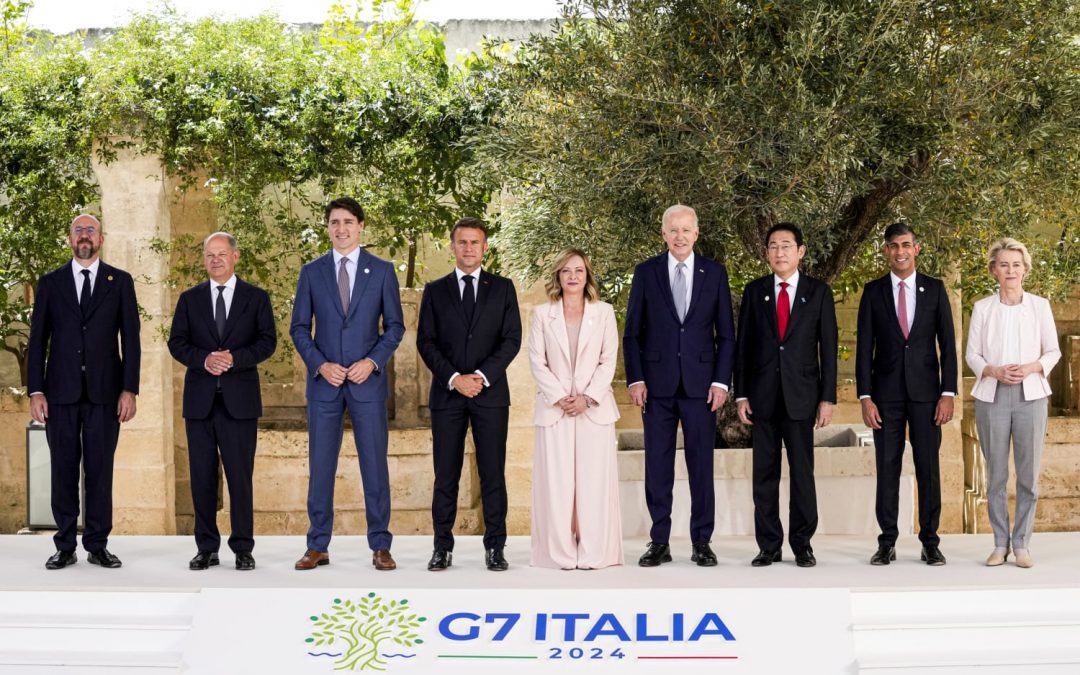
by Editor | Jun 17, 2024 | News
Last week, leaders of the Four Pillars met for the G7 Leaders’ Summit 2024 in Bari, Italy and also for Ukraine’s peace talks hosted in Switzerland. Most of the Four Pillars, or member-states that make up a Pillar, are parts of the G7 – the US, Japan, and the European states and the EU itself. India was also present as a key and growing state for cooperation in the Asia-Pacific.
Affirming their support for Ukraine, the US, a Pillar, announced a security agreement with Kyiv, expanding commitments and aid. Additionally, G7 leaders have agreed to use frozen Russian assets for Ukrainian aid – for $50 billion. Although this proposal was floated last year and even in 2022, there was no real will to enact it until now. It may be a year too late for this to come to fruition, but better late than never.
In Switzerland, even though the peace talks may be political theater for now – Russia is not attending and China has been undermining these efforts – it showed that the Pillars and Ukraine are still open to peaceful resolutions, but one that still respects Ukraine’s sovereignty.
While leaders of the Four Pillars meet and discuss these issues, let us remember what happens on the other side:
It is doubly vital that the Four Pillars (and by extension, organizations like NATO and G7) continue to work together to contain these threats to the rules-based and liberal-democratic order.
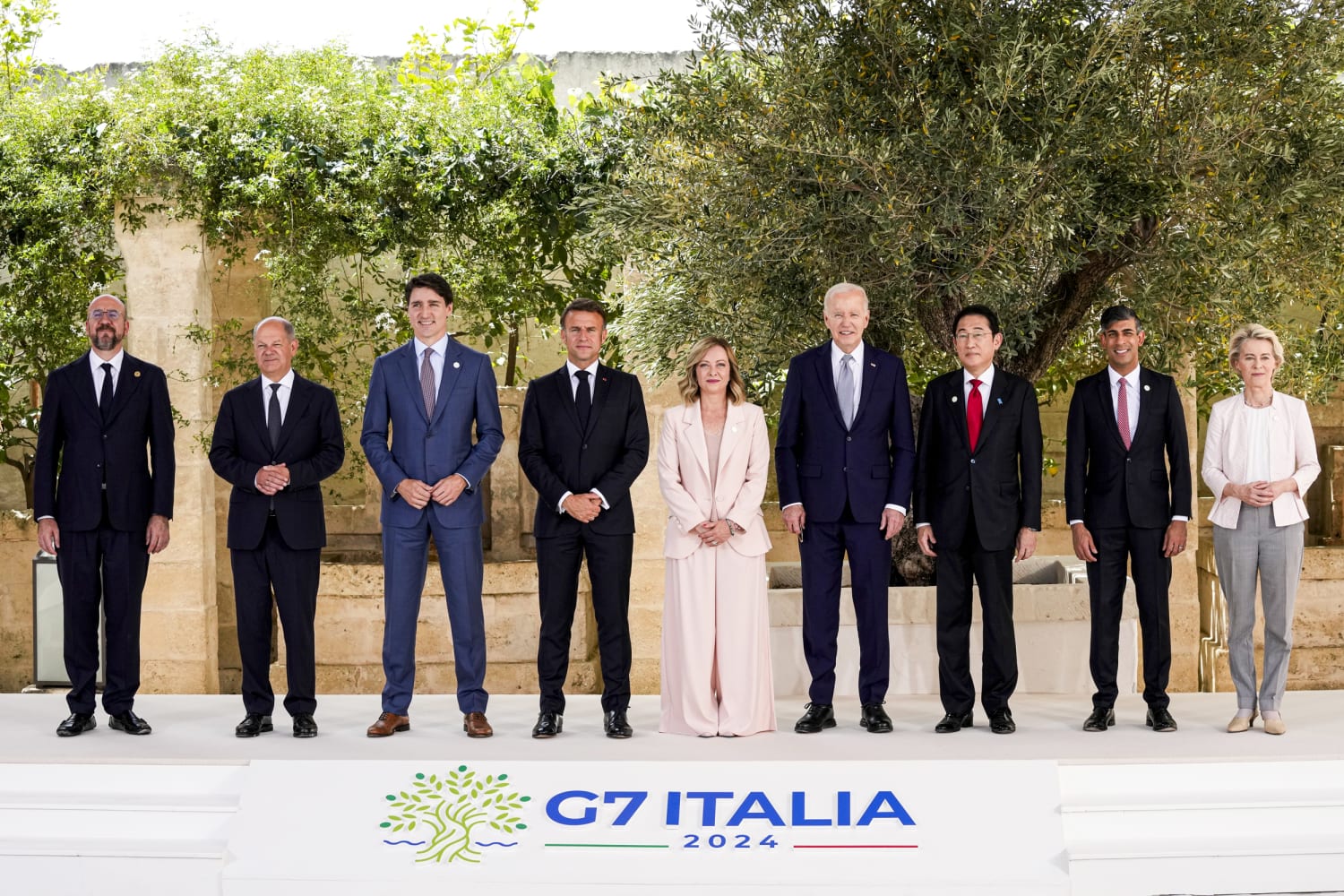
Alex Brandon / AP
Minh Nguyen is the Chief Editor of the Boston Global Forum and a Shinzo Abe Initiative Fellow. She writes the Four Pillars column in the BGF Weekly newsletter.




















